
-
-
-
Advance your career
In 3-9 months, gain the skills to break into a new career or take your career to the next level.
10th
View allADVANCED MANAGEMENT PROGRAMME (MANUFACTURING AND OPERATIONS)
View allAGNIVEER MR
View allAGNIVEER SSR
View allALLAHABAD HC RO/ARO
View allAnthropology (B.Sc Anthropology)
View allArtificial Intelligence
View allASSOCIATION OF CHARTERED CERTIFIED ACCOUNTANTS [ACCA]
View allB.A (Hons.) Business Economics
View allB.A Geography
View allB.A Hons (English)
View allB.A. - Public Administration
View allB.A. Economics
View allB.A. English
View allB.A. in Fashion and Textile Design
View allB.A. in Jewellery and Accessory Design
View allB.A. in Political Science
View allB.A. in Visual Communication
View allB.A. Journalism and Mass Communication
View allB.A. LLB
View allB.Com (Hons.)
View allB.Ed or Bachelor of Education
View allB.Ed or Bachelor of Education in Physical Science
View allB.Sc - Computer Science
View allB.Sc - Electronics
View allB.Sc - Forensic Science
View allB.Sc - Genetics
View allB.Sc - Geology
View allB.Sc - Home Science
View allB.Sc - Horticulture
View allB.Sc - Life Sciences
View allB.Sc - Microbiology
View allB.Sc - Statistics
View allB.Sc - Zoology
View allB.Sc in Animation
View allB.Sc in Physiology
View allB.Sc LLB (B.Sc LLB)
View allB.Sc. (Hons.) Chemistry
View allB.Sc. (Hons.) Computer Science
View allB.Sc. (Hons.) Mathematics
View allB.Sc. (Hons.) Physics
View allB.Sc. Agriculture
View allB.Sc. Biochemistry
View allB.Sc. Biotechnology
View allB.Sc. Nursing
View allB.Tech - Automobile Engineering
View allB.Tech - Biochemical Engineering
View allB.Tech - Ceramic Engineering
View allB.Tech - Genetic Engineering
View allB.Tech - Instrumentation Engineering
View allB.Tech - Mechatronics Engineering
View allB.Tech - Mining Engineering
View allB.Tech - Production Engineering
View allB.Tech - Telecommunication Engineering
View allB.Tech - Textile Engineering
View allB.Tech : Mechanical Engineering
View allB.Tech-Artificial Intelligence
View allB.Tech-Chemical Engineering
View allB.Tech-Civil Engineering
View allB.Tech-Computer Science Engineering
View allB.Tech-Electrical Engineering
View allB.Tech-Electronics and Communications Engineering
View allB.Tech-Mechanical Engineering
View allBA LLB (BA LLB)
View allBachelor of Accounting and Finance (BAF)
View allBachelor of Audiology & Speech Language Pathology (BASLP)
View allBachelor of Banking & Insurance (BBI)
View allBachelor of Business Administration (BBA)
View allBachelor of Computer Applications (BCA)
View allBachelor of Design (B.Des)
View allBachelor of Education (B.Ed)
View allBachelor of Education (B.Ed) in History
View allBachelor of Education (B.Ed) Psychology
View allBachelor of Education (BE.d) English
View allBachelor of Education (BEd) Commerce
View allBachelor of Education (BEd) in Physical Education
View allBachelor of Education in Hindi
View allBachelor of Education in Tamil [B.Ed] (Tamil)
View allBachelor of Elementary Education (B.El.Ed)
View allBachelor of Financial Markets (BFM)
View allBachelor of Fine Arts
View allBachelor of Management Studies (BMS)
View allBachelor of Mass Communication (BMC)
View allBachelor of Mass Media (BMMC)
View allBachelor of Multimedia Communication (BMMC)
View allBachelor of Optometry
View allBachelor of Optometry (BOPTM)
View allBachelor of Physical Education (B.P.Ed)
View allBachelor of Tourism and Travel Management (BTTM)
View allBachelor of Visual Communication (B.V.C)
View allBachelor of Visual Communication (BVC)
View allBachelor of Vocation (B.Voc) in Software Development
View allBachelors in Banking and Insurance (BBI)
View allBachelors of Commerce and Bachelor of Legislative Law (B.Com LLB)
View allBBA LLB
View allBEd Political Science
View allBIHAR CGL TEST SERIES
View allBIHAR CIVIL COURT
View allBIHAR DAROGA
View allBIHAR PROHIBITION CONSTABLE
View allBOB PO
View allBOB SO
View allBOI SO
View allBPSC HEAD MASTER
View allBPSC SANITARY & WM
View allBusiness Analytics
View allCANARA BANK PO
View allCAT
View allCAT Exam
View allCBI SO
View allCBSE 5
View allCBSE 7
View allCBSE 1
View allCBSE 11th
View allCBSE 12TH
View allCBSE 2
View allCBSE 3
View allCBSE 4
View allCBSE 6
View allCBSE 8
View allCBSE 9TH
View allCBSE CTET
View allCDS
View allCERTIFICATE IN BUSINESS ANALYTICS
View allCertificate Course in Accounting
View allCertificate Course in Banking
View allCERTIFICATE COURSE IN BANKING
View allCERTIFICATE COURSE IN BUSINESS ANALYTICS
View allCERTIFICATE COURSE IN C++
View allCERTIFICATE COURSE IN COMMUNICATIVE ENGLISH
View allCERTIFICATE COURSE IN COMPUTER APPLICATION [CCA]
View allCertificate Course in Fashion Design
View allCERTIFICATE COURSE IN FINANCIAL ACCOUNTING & TAXATION [CCFAT]
View allCERTIFICATE COURSE IN FRENCH
View allCERTIFICATE COURSE IN FUNCTIONAL ENGLISH
View allCERTIFICATE COURSE IN GERMAN
View allCERTIFICATE COURSE IN INFORMATION TECHNOLOGY
View allCertificate Course in Interior Design
View allCERTIFICATE COURSE IN INTERIOR DESIGN
View allCertificate Course in JAVA
View allCERTIFICATE COURSE IN JAVA
View allCERTIFICATE COURSE IN JOURNALISM
View allCERTIFICATE COURSE IN PHOTOGRAPHY
View allCERTIFICATE COURSE IN PHYSIOTHERAPY
View allCERTIFICATE COURSE IN SPANISH
View allCERTIFICATE COURSE IN SPOKEN ENGLISH
View allCertificate Course in Stock Market
View allCERTIFICATE COURSE IN STOCK MARKET
View allCertificate Course in Tally
View allCERTIFICATE COURSE IN TALLY
View allCERTIFICATE COURSE IN YOGA
View allCertificate courses in C ++
View allCERTIFICATE IN ACCOUNTING
View allCertificate in Animation
View allCERTIFICATE IN ANIMATION
View allCertificate in Auto CAD
View allCERTIFICATE IN AUTO CAD
View allCertificate in CAD
View allCERTIFICATE IN CAD
View allCertificate in Cloud Computing
View allCERTIFICATE IN CLOUD COMPUTING
View allCertificate in Computer Application
View allCERTIFICATE IN COSMETOLOGY
View allCERTIFICATE IN DISASTER MANAGEMENT [CDM]
View allCERTIFICATE IN ENGLISH
View allCERTIFICATE IN HINDI
View allCERTIFICATE IN HUMAN RESOURCES
View allCertificate in Information Technology
View allCERTIFICATE IN INSURANCE SERVICES
View allCERTIFICATE IN LABORATORY TECHNIQUES [CPLT]
View allCERTIFICATE IN PROJECT MANAGEMENT
View allCERTIFICATE IN TOURISM AND TRAVEL MANAGEMENT
View allCERTIFICATE IN WEB DESIGNING
View allCertificate in Web Designing.
View allCERTIFICATE PROGRAM IN SUPPLY CHAIN MANAGEMENT
View allCERTIFICATE PROGRAMME IN SALES AND MARKETING
View allCERTIFIED COURSE IN FOOD AND NUTRITION
View allCERTIFIED FINANCIAL PLANNER [CFP]
View allCHARTERED ACCOUNTANT
View allChartered Financial Analyst
View allchinese
View allCISF CONSTABLE/TRADESMEN
View allCIVIL SERVICES
View allCLAT
View allCLAT EXAMS
View allCloud Computing
View allCOMBINED GEO-SCIENTIST
View allCOMBINED MEDICAL SERVICES
View allContent Writing
View allCraftsmanship Course in Food Production
View allCRPF ASI/HC
View allCRPF CONSTABLE TRADESMAN
View allCRPF SI & ASI
View allCS (Company Secretary)
View allCUET
View allCyber Security
View allD.EL.Ed.
View allData Analytics
View allData Science
View allDigital Marketing
View allDiploma in 3D Animation
View allDiploma in Advertising and Marketing
View allDiploma in Airline, Travel and Tourism Management
View allDiploma in Animation and Multimedia
View allDIPLOMA IN ARCHITECTURE ENGINEERING
View allDIPLOMA IN AUTOMOBILE ENGINEERING
View allDiploma in Bakery and Confectionery
View allDIPLOMA IN BIOMEDICAL ENGINEERING
View allDIPLOMA IN CHEMICAL ENGINEERING
View allDIPLOMA IN CIVIL ENGINEERING
View allDiploma in Communicative English
View allDIPLOMA IN COMPUTER ENGINEERING
View allDIPLOMA IN COMPUTER SCIENCE AND ENGINEERING
View allDIPLOMA IN DENTAL HYGIENIST
View allDIPLOMA IN DENTAL MECHANICS
View allDiploma in education
View allDIPLOMA IN ELECTRICAL & ELECTRONICS ENGINEERING
View allDIPLOMA IN ELECTRICAL ENGINEERING
View allDIPLOMA IN ELECTRONICS ENGINEERING
View allDiploma in elementary education
View allDiploma in Engineering
View allDiploma in Event Management
View allDIPLOMA IN FINE ARTS
View allDiploma in Food and Beverage Services
View allDiploma in Gemology
View allDiploma in Hotel Management (DHM)
View allDiploma in Information Technology
View allDIPLOMA IN INFORMATION TECHNOLOGY
View allDiploma in Interior Designing
View allDiploma in Journalism and Mass Communication (DJMC)
View allDIPLOMA IN MECHANICAL ENGINEERING
View allDIPLOMA IN MECHATRONICS
View allDiploma in Medical Lab Technology
View allDiploma in Medical Laboratory Technology (DMLT)
View allDIPLOMA IN MINING ENGINEERING
View allDiploma in Multimedia
View allDiploma in Nursing
View allDiploma in Nursing Care Assistant (DNCA)
View allDiploma in Nutrition and Dietetics
View allDiploma in Office Management
View allDIPLOMA IN PETROLEUM ENGINEERING
View allDiploma in Photography
View allDiploma in Physiotherapy
View allDIPLOMA IN PRODUCTION ENGINEERING
View allDiploma in Radiological Technology
View allDiploma in Rural Healthcare
View allDiploma in Scriptwriting/Creative Writing
View allDiploma in Sound Recording
View allDiploma in Travel & Tourism
View allDiploma in Visual Merchandising
View allDiploma in X-Ray Technician
View allEmail-Marketing
View allEPFO
View allFashion Designer
View allFCI MANAGEMENT TRAINEE
View allFEDERAL BANK PO
View allFull-Stack Developer
View allGATE
View allGraphic Design
View allHARCO BANK
View allHPSC PGT
View allHSSC Canal Patwari
View allHSSC GRAM SACHIV
View allIB SA/EXE & MTS/GEN
View allIBPS CLERK
View allIBPS PO
View allIBPS RRB OFFICE ASSISTANT
View allIBPS RRB OFFICER SCALE 1
View allIBPS SO Exam
View allIBPS Specialist Officer Exams
View allICAR
View allIIBF JE
View allINDIAN AIRFORCE APPRENTICE
View allINDIAN BANK COST GUARD (GD/DB)
View allINDIAN BANK PO
View allINDIAN BANK SO
View allINDIAN ECONOMIC SERVICE
View allINDIAN ER.SERVICES
View allINDIAN FOREST SERVICE
View allINDIAN NAVY AA/SSR
View allIPPB
View allJH POLICE RO
View allJK BANK PO
View allJK POLICE CONSTABLE
View allJob Oriented
View allJSSC EXCISE AND PROHIBITION
View allKG
View allLAKHSMI VILAS BANK PO
View allLDCE
View allLIC AAO
View allLIC ADO
View allLIC HFL
View allLL.M - Criminal Law
View allLL.M - Cyber Law
View allLL.M - International Law
View allLL.M - Labour Law
View allM.A. - Public Administration
View allM.A. in Economics
View allM.A. in English
View allM.A. Political Science
View allM.A. Rural Development
View allM.A.in History
View allM.Sc - Geoinformatics
View allMachine Learning
View allMaster of Education (M.Ed)
View allMaster of Law (LL.M)
View allMaster of Mass Communication (MMC)
View allMasters in Journalism and Mass Communication (MJMC)
View allMasters of Business Administration (MBA)
View allMAT
View allMBA - Communication Management
View allMBA - Customer Relationship Management (MBA CRM)
View allMBA - Environmental Management
View allMBA - Healthcare & Hospital Management
View allMBA - Hospitality Management
View allMBA - Logistics and Supply Chain Management
View allMBA - Materials Management
View allMBA - Media Management
View allMBA - Natural Resource Management
View allMBA - Operations Management
View allMBA - Project Management
View allMBA - Retail Management
View allMBA - Risk Management
View allMBA - Rural Development Management
View allMBA - Sales Management
View allMBA - Sports Management
View allMBA - Sustainable Management
View allMBA - Technology Management
View allMBA-Finance
View allMBA-Hr
View allMBA-Insurance
View allMBA-IT
View allMBA-Marketing
View allMCM: Masters of Computer Management
View allMP PATWARI
View allMP PSC
View allMP TET
View allMPPSC FOREST SERVICE
View allNAINITAL BANK
View allNDA & NA
View allNIOS 10
View allNIOS 11
View allNIOS 12
View allNIOS D.EL.ED.
View allNTPC CBT
View allOICL RECRUITMENT
View allOSSSC RECRUITMENT
View allPATNA HC STENO
View allPGP - Tax Management
View allPost Graduate Diploma in Technical Writing
View allProgramming
View allProject Management
View allRBI ASSISTANT
View allRBI Grade B Exam
View allRRB ASSISTANT LOCO PILOT
View allRRB Group D.
View allRSCB
View allRSMSSB COMPUTOR
View allRSMSSB FOREST GUARD
View allRSMSSB INFORMATICS ASSISTANT
View allRSMSSB JE
View allRSMSSB LAB TECH
View allRSMSSB LIB
View allRSMSSB PATWARI
View allRSMSSB PHARMACIST
View allSBI Clerk
View allSBI Clerk 2024
View allSBI PO
View allSIDBI GRADE A
View allSIDBI GRADE B
View allSocial Media Marketing
View allSoft Skills
View allSoftware Development.
View allSSC SELECTION POST
View allUIIC ASSISTANT
View allUPPSC ASST.PRO
View allUPPSC NURSE
View allUPPSC PROGRAMMER
View allUPSSSC ATA
View allUPSSSC INSTRUCTOR
View allUPSSSC VDO
View allVCBL PO
View allWealth Management
View allWeb Designing
View allXAT
View allDiploma in Cosmetology
View all
-
-
-
Advance your career
In 3-9 months, gain the skills to break into a new career or take your career to the next level.
-
-
-
Advance your career
In 3-9 months, gain the skills to break into a new career or take your career to the next level.
-
-
-
Advance your career
In 3-9 months, gain the skills to break into a new career or take your career to the next level.
Arts And Humanities.
No courses found
Business
View allCertificate
View allComputer Science
No courses found
Graphic Design
No courses found
Health
No courses found
Information Technology
View allLanguage Learning
No courses found
Math And Logic
No courses found
Physical Science And Engineering
No courses found
Social Science
No courses found
Soft Skills
No courses found
-
-
-
Find your new career
Breakthrough pricing on 100% online degrees designed to fit into your life.
CERTIFICATE IN ANIMATION
No subjects found
Get started
-
-
-
Find your new career
Breakthrough pricing on 100% online degrees designed to fit into your life.
CERTIFICATE COURSE IN COMMUNICATIVE ENGLISH
No subjects found
CERTIFICATE COURSE IN FRENCH
No subjects found
CERTIFICATE COURSE IN FUNCTIONAL ENGLISH
No subjects found
CERTIFICATE COURSE IN GERMAN
No subjects found
CERTIFICATE COURSE IN SPANISH
No subjects found
CERTIFICATE COURSE IN SPOKEN ENGLISH
No subjects found
CERTIFICATE IN ENGLISH
No subjects found
CERTIFICATE IN HINDI
No subjects found
CERTIFICATE IN INSURANCE SERVICES
No subjects found
DIPLOMA IN FINE ARTS
No subjects found
Get started
-
-
-
Find your new career
Breakthrough pricing on 100% online degrees designed to fit into your life.
No courses found
Get started
-
-
-
Find your new career
Breakthrough pricing on 100% online degrees designed to fit into your life.
Certificate Course In Accounting
No subjects found
Certificate Course In Banking
No subjects found
Certificate Course In Interior Design
No subjects found
Certificate Course In Stock Market
No subjects found
Certificate Course In Tally
No subjects found
Get started
-
-
-
Find your new career
Breakthrough pricing on 100% online degrees designed to fit into your life.
Certificate Course In Fashion Design
No subjects found
Certificate In Auto CAD
No subjects found
Certificate In CAD
No subjects found
Chinese
No subjects found
Get started
-
Goals
Departments
-
Chemistry
Academic |
CBSE 11th
Understand the concepts and topics of class eleventh chemistry

Runali Deb Roy
Last Update : 07 Jan 2023
Overview of the CBSE Class 11 Chemistry Course
Understanding the ideas and themes of class eleven chemistry is a complex endeavor. It requires thorough knowledge of the material. Some students may benefit by studying for CBSE eleven-standard chemistry exams while others could use CBSE study notes to study for it. Chemistry classes eleven–12 will learn what they need to study, how many marks each unit receives, and how long it takes to complete it by studying for reviews like these. It is based on this that they can arrange their study time more efficiently. Exam questions will understand topics that pupils learn in CBSE Class 11 Chemistry standards; thus, pupils should adhere to the curriculum provided by reviews like these.
Course Curriculum and Topics Covered in CBSE Class 11 Chemistry
- Encourage awareness of fundamental chemical facts and ideas.
- Prepare to face a variety of challenges in agriculture, industry, population, environment, and health.
- Improve your problem-solving abilities.
- Expose the various industrial processes and their technological applications.
- Develop an interest in pursuing a career in chemistry.
Course Content
- Importance and scope of Chemistry
- Laws of chemical combination
- Dalton’s atomic theory
- Atoms and molecules
- Atomic and molecular masses
- Mole concept
- Molar mass
- Percentage composition
- Empirical and molecular formula
- Chemical reactions
- Stoichiometry
- Calculations based on stoichiometry
- Discovery of Electron
- Proton and Neutron
- Atomic number
- Isotopes and isobars
- Thomson’s model and its limitations
- Rutherford’s model and its limitations
- Bohr’s model and its limitations
- de Broglie’s relationship
- Heisenberg uncertainty principle
- Concept of orbitals
- Quantum numbers
- Shapes of s, p, and d orbitals
- Rules for filling electrons in orbitals
- Aufbau principle
- Pauli’s exclusion principle
- Hund’s rule
- Electronic configuration of atoms
- Stability of half-filled and completely filled orbitals
- Significance and development of the periodic table
- Modern periodic law and the present form of the periodic table
- Periodic trends in properties of elements
- Atomic radii
- Ionic radii
- Inert gas radii
- Ionization enthalpy
- Electrons gain enthalpy
- Electronegativity
- Valency
- Nomenclature of elements with atomic number greater than 100
- Valence electrons
- Ionic bond
- Covalent bond
- Bond parameters
- Lewis structure
- The polar character of covalent bond
- The covalent character of ionic bond
- Valence bond theory
- Resonance
- The geometry of covalent molecules
- VSEPR theory
- Concept of hybridization
- S, p, and d orbitals and shapes of some simple molecules
- Molecular orbital theory
- Hydrogen bond
- Three states of matter
- Intermolecular interactions
- Types of bonding
- Melting and boiling points
- Role of gas laws in elucidating the concept of the molecule
- Boyle’s law
- Charles law
- Gay Lussac’s law
- Avogadro’s law
- Ideal behavior
- Empirical derivation of gas equation
- Ideal gas equation
- Deviation from ideal behavior
- Liquefaction of gases
- Critical temperature
- Kinetic energy and molecular speeds (elementary idea)
- Liquid State – vapor pressure
- Viscosity and surface tension
- Concepts of System and types of systems, surroundings, work, heat, energy,
- Extensive and intensive properties
- State functions
- The first law of thermodynamics
- Internal energy
- Enthalpy
- Heat capacity
- Specific heat
- Measurement of ?U and ?H
- Hess’s law of constant heat summation
- Enthalpy of bond dissociation
- Combustion, formation, atomization
- Sublimation, phase transition, ionization
- Solution and dilution
- The second law of Thermodynamics (brief introduction)
- Introduction of entropy
- State function
- Gibb’s energy change for spontaneous and non-spontaneous processes
- Criteria for equilibrium
- Third law of thermodynamics (brief introduction)
- Equilibrium in physical and chemical processes
- Dynamic nature of equilibrium
- Law of mass action
- Equilibrium constant, factors affecting equilibrium
- Le Chatelier’s principle
- Ionic equilibrium –
- Ionization of acids and bases
- Strong and weak electrolytes
- Degree of ionization
- Ionization of polybasic acids
- Acid strength
- Concept of pH
- Hydrolysis of salts (elementary idea)
- Buffer solution
- Henderson Equation
- Solubility product
- Common ion effect (with illustrative examples)
- Concept of oxidation and reduction
- Redox reactions
- Oxidation number
- Balancing redox reactions, in terms of loss and gain of electrons and change in oxidation number
- Applications of redox reactions
- Position of hydrogen in the periodic table
- Occurrence
- Isotopes
- Preparation, properties of hydrogen
- Uses of hydrogen
- Hydrides – ionic covalent and interstitial
- Physical and chemical properties of water
- Heavy water
- Hydrogen peroxide – preparation, reactions and structure, and use
- Hydrogen as a fuel
- Group 1 and Group 2 Elements General introduction
- Electronic configuration
- Occurrence, anomalous properties of the first element of each group, diagonal relationship, Trends in the variation of properties (such as ionization enthalpy, atomic and ionic radii)
- Trends in chemical reactivity with oxygen, water, hydrogen, and halogens, uses.
Preparation and Properties of Some Important Compounds:
- Sodium Carbonate
- Sodium Chloride
- Sodium Hydroxide
- Sodium Hydrogen carbonate
- Biological importance of Sodium and Potassium
- Calcium Oxide
- Calcium Carbonate and their industrial uses
- Biological importance of Magnesium and Calcium
- General Introduction to p -Block Elements
- Group 13 Elements:
- Boron – physical and chemical properties
Some important compounds:
- Borax, Boric acid, Boron Hydrides, Aluminium: Reactions with acids and alkalis,
- Group 14 Elements:
- Carbon-catenation
- Allotropic forms
- Physical and chemical properties
- Uses of some important compounds: Oxides
Important compounds of Silicon and a few uses
- Silicon Tetrachloride, Silicones, Silicates and Zeolites, their uses
- General introduction
- Methods of purification
- Qualitative analysis
- Classification and IUPAC nomenclature of organic compounds
- Electronic displacements in a covalent bond: inductive effect, electromeric effect, resonance and hyperconjugation.
- Homolytic and heterolytic fission of a covalent bond: free radicals, carbocations, carbanions, electrophiles and nucleophiles
- Types of organic reactions
- Classification of Hydrocarbons
- Aliphatic Hydrocarbons:
- Alkanes – Nomenclature, isomerism, conformation (ethane only), physical properties, chemical reactions including free radical mechanism of halogenation, combustion, and pyrolysis.
- Alkenes – Nomenclature, Structure of double bond (ethene), geometrical isomerism, physical properties, methods of preparation, chemical reactions: addition of hydrogen, halogen, water, hydrogen halides (Markovnikov’s addition and peroxide effect), ozonolysis, oxidation, mechanism of electrophilic addition.
- Alkynes – Nomenclature, the structure of triple bond (ethyne), physical properties, methods of preparation, chemical reactions: acidic character of alkynes, addition reaction of – hydrogen, halogens, hydrogen halides, and water.
Aromatic Hydrocarbons:
- Introduction, IUPAC nomenclature, benzene: resonance, aromaticity, chemical properties: mechanism of electrophilic substitution. Nitration, sulphonation, halogenation, Friedel Crafts alkylation and acylation, directive influence of the functional group in monosubstituted benzene. Carcinogenicity and toxicity
- Environmental pollution – air, water, and soil pollution, chemical reactions in the atmosphere, smog, major atmospheric pollutants, acid rain, ozone and its reactions, effects of depletion of the ozone layer, greenhouse effect, and global warming – pollution due to industrial wastes, green chemistry as an alternative tool for reducing pollution, strategies for control of environmental pollution.
Course Details & Descriptions
The Chemistry Class 11 syllabus has been the talk of the class for a while now. Everyone is wondering what new topics will be taught this year, or will there even be any changes to the course content? Bob Smith has officially released the details of the course on his blog. Download it for free in chunks based on your schedule with Chemistry 11 Syllabus pdf.
Class 11 Chemistry is an important stage in higher education.
It is at this stage that they are introduced to the notion of streams, which include several topic combinations from which they must pick. This choice will have a significant influence on their future employment prospects. It is also vital for students to perform well in Class 11 since it demonstrates that they understand the courses they have chosen and will be able to continue them in Class 12.
- Duration 12 Months
- Level Beginner
- Lectures 12 Lectures
- Language English
- Enrolled 100+ Enrolled
- Recorded Video 43
- Notes 15
- MCQs 50
- PPTs 20
- Live Test Series 58
- E-Book 10
Chemistry in Class 11 introduces some new subjects.
All of these subjects are necessary for students who wish to pursue a profession in disciplines linked to chemistry to have a strong foundation in the subject for higher study in institutions. The study is primarily concerned with the makeup of the many non-living objects that exist in our environment. It covers the existence of matter in many states, including solids, gases, and liquids. Many chapters in class 11 will assist students comprehend the chemical compositions and reactions that occur when various elements combine.

Course Structure
1
Unit I: Some Basic Concepts of Chemistry
General Introduction: Importance and scope of Chemistry.
Nature of matter, laws of chemical combination, Dalton's atomic theory: the concept of elements, atoms, and molecules.
Atomic and molecular masses, mole concept and molar mass, percentage composition, empirical and molecular formula, chemical reactions, stoichiometry, and calculations based on stoichiometry
2
Unit II: Structure of Atom
Discovery of Electron, Proton, Neutron, atomic number, isotopes, and isobars. Thomson's model and its limitations. Rutherford's model and its limitations, Bohr's model and its limitations, the concept of shells and subshells, the dual nature of matter and light, de Broglie's relationship, Heisenberg uncertainty principle, the concept of orbitals, quantum numbers, shapes of s, p and d orbitals, rules for filling electrons in orbitals - Aufbau principle, Pauli's exclusion principle and Hund's rule, electronic configuration of atoms, stability of half-filled and completely filled orbitals.
Â
Unit III: Classification of Elements and Periodicity in Properties
Significance of classification, a brief history of the development of the periodic table, modern periodic law and the present form of the periodic table, periodic trends in properties of elements -atomic radii, ionic radii, inert gas radii, Ionization enthalpy, electron gain enthalpy, electronegativity, valency. Nomenclature of elements with atomic number greater than 100.
Course Instructor

Shruti Koli
It facilitates student learning through interactive classrooms, question and answer sessions, and individual attention to each student.

Ravikant Sharma
It is an useful website for test preparation, whether technical or non-technical. It includes simulated examinations and previous year papers to help with knowledge and preparation.
Start Learning Today
Financial aid available
- Taught by top companies and universities
- Affordable programs
- Apply your skills with hands-on projects
- Learn on your own schedule
- Course videos and readings
- Graded quizzes and assignments
- Shareable Certificate upon completion
12 Lessons
100 Seats
12 Months
Class 11 Chemistry Chemical Bonding
12 Lessons
100 Seats
12 Months
Class 11 Chemistry Some Baisic Concepts of Chemistry
12 Lessons
100 Seats
12 Months
Class 11 Chemistry Equilibrium-I
12 Lessons
100 Seats
12 Months
Class 11 Chemistry Chemical bonding and molecular structure
12 Lessons
100 Seats
12 Months
Class 11 Chemistry Hydrocarbons
Frequently Asked Questions
Matter is made up of atoms and molecules, and the arrangement of these building blocks determines the shape and structure of matter. The physical properties of matter are determined by the force of interaction between its molecules. This force is known as an intermolecular force. The intermolecular force is greatest in solids and least in gases.
Carbon dioxide and water vapor in the atmosphere absorb infrared light. Part of these rays are also reflected on the earth's surface, causing it to heat. Global warming, often known as the Greenhouse Effect, refers to the heating of the earth's surface. This phenomenon arose primarily as a result of deforestation, which increased CO2 levels in the atmosphere.
If you are seeking Class 11 Chemistry notes that can help you better comprehend the numerous topics included in the curriculum, Vedantu's e-platform is the place to go. Students may access and download CBSE Notes for Class 11 Chemistry chapter-by-chapter from the Vedantu website or app. These notes are free to download. Subject specialists prepared these notes to assist students with the greatest resource available for better and stronger preparation for their Class 11 Chemistry exam. These solutions are based on the most recent CBSE standards and exam patterns, thus they are completely dependable and correct.
- Preparation of Class 11 CBSE Chemistry Sections following the CBSE Syllabus
- Examining past year's question papers
- Last-minute Notes revision
Class 11 Chemistry has a lengthy syllabus that spans two volumes. Matriye Academy Revision Notes for Class 11 Chemistry helps students by presenting all pertinent material in simple and concise terms. When you don't have time to go over every line in the textbook before the tests, these notes are an excellent revision aid. If you write personalized notes, you may compare them to our experienced specialists' notes for a more complete picture.
CBSE curriculum preparation is required for Class 11 CBSE Chemistry examinations. It is also recommended to solve sample question papers.
Class 11 Chemistry Notes cover the following chapters:
- Chapter 1 - Some Basic Concepts of Chemistry
- Chapter 2 - Structure of Atom
- Chapter 3 - Classification of Elements and Periodicity in Properties
- Chapter 4 - Chemical Bonding and Molecular Structure
- Chapter 5 - States of Matter
- Chapter 6 - Thermodynamics
- Chapter 7 - Equilibrium
- Chapter 8 - Redox Reactions
- Chapter 9 - Hydrogen
- Chapter 10 - The s-Block Elements
- Chapter 11 - The p-Block Elements
- Chapter 12 - Organic Chemistry - Some Basic Principles and Techniques
- Chapter 13 - Hydrocarbons
- Chapter 14 - Environmental Chemistry
CBSE Class 11 Chemistry is regarded to be simpler, however significant preparation is essential to achieve top scores.
If you are purchasing online, you can pay for your online purchase by debit card, credit card, Net banking, and cheque. All transactions will be through a secured gateway.
Cards
You may quickly pay your registration fee with a valid credit or debit card
.
Net Banking
You can pay using net banking, which accepts payments from over 80+ banks. e.g SBI, HDFC, Axis bank, etc
UPI
If you have UPI activated on your bank's mobile app, you may pay your registration fee from your phone by using Gpay, Phone Pe or Paypal, etc
Wallets
PayTM, PhonePe and other apps' wallets can be used to pay your registration fee
Any single course has a one-year validity term. If you purchase two classes, the validity period is two years. If you purchase another course from Matriyeacademy the following year, the validity term will be automatically extended by one year.
























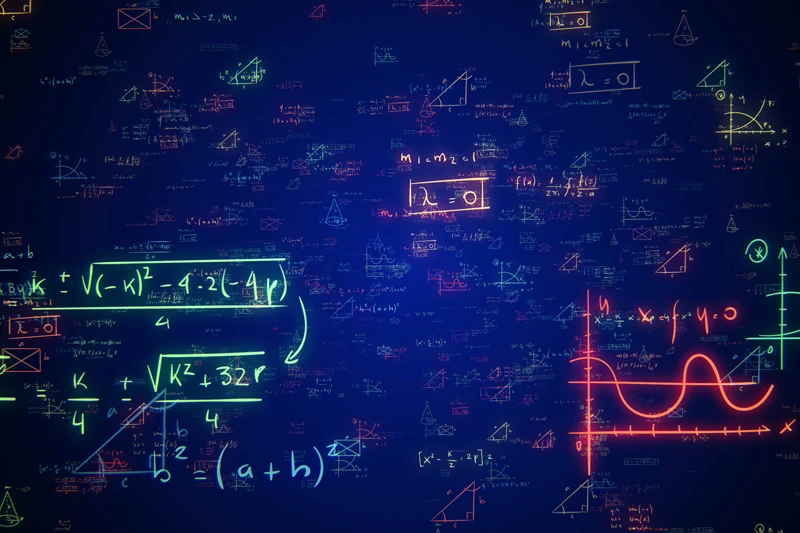
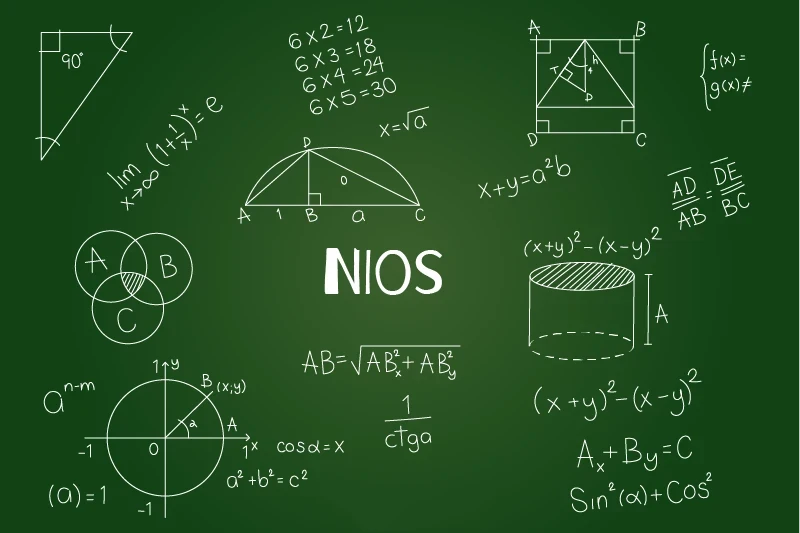







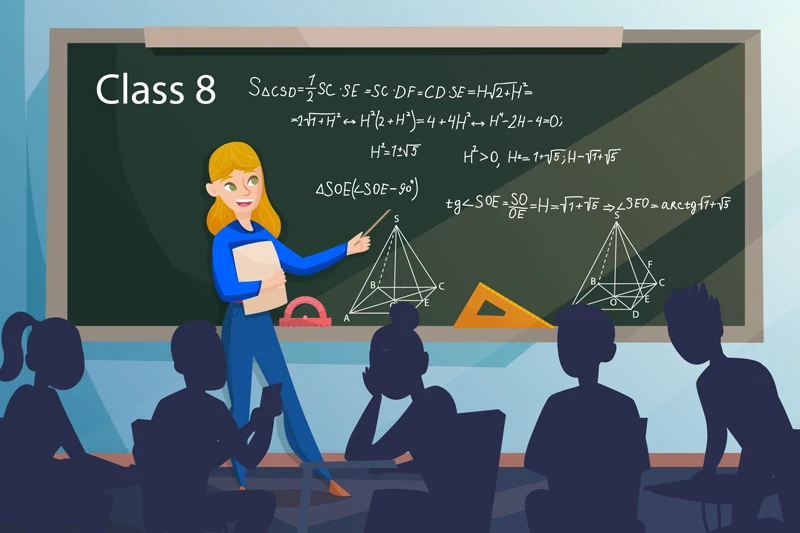











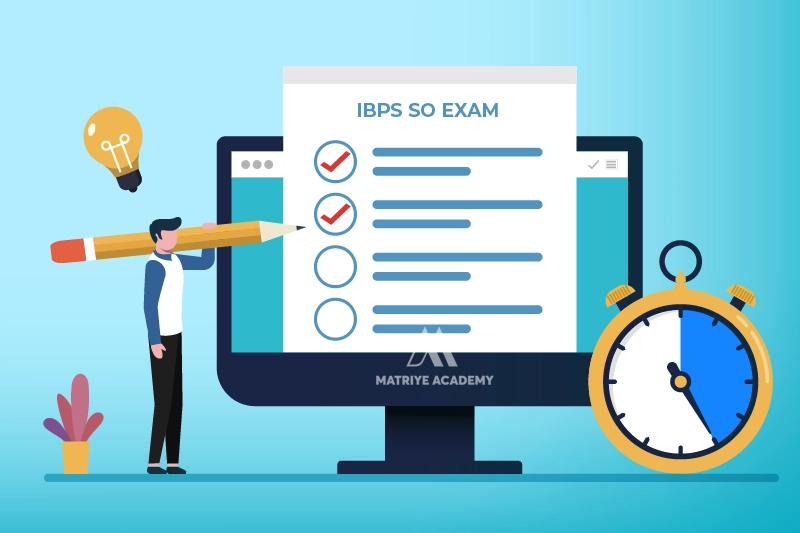
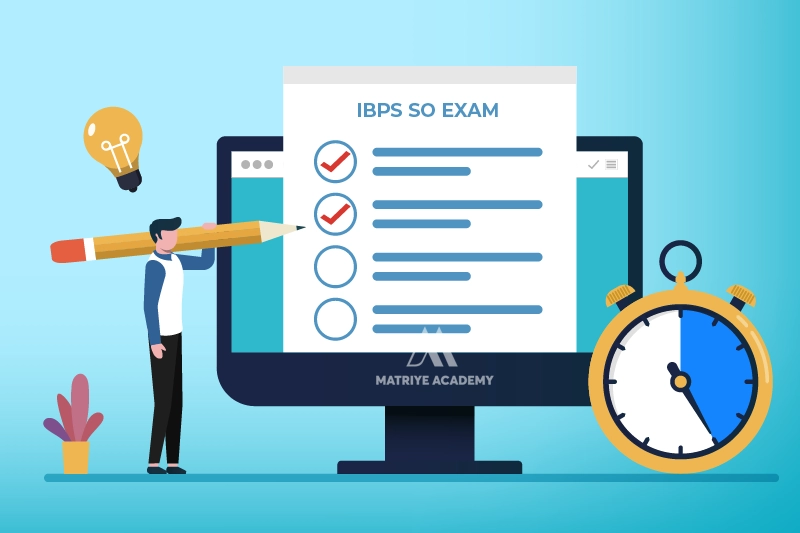





















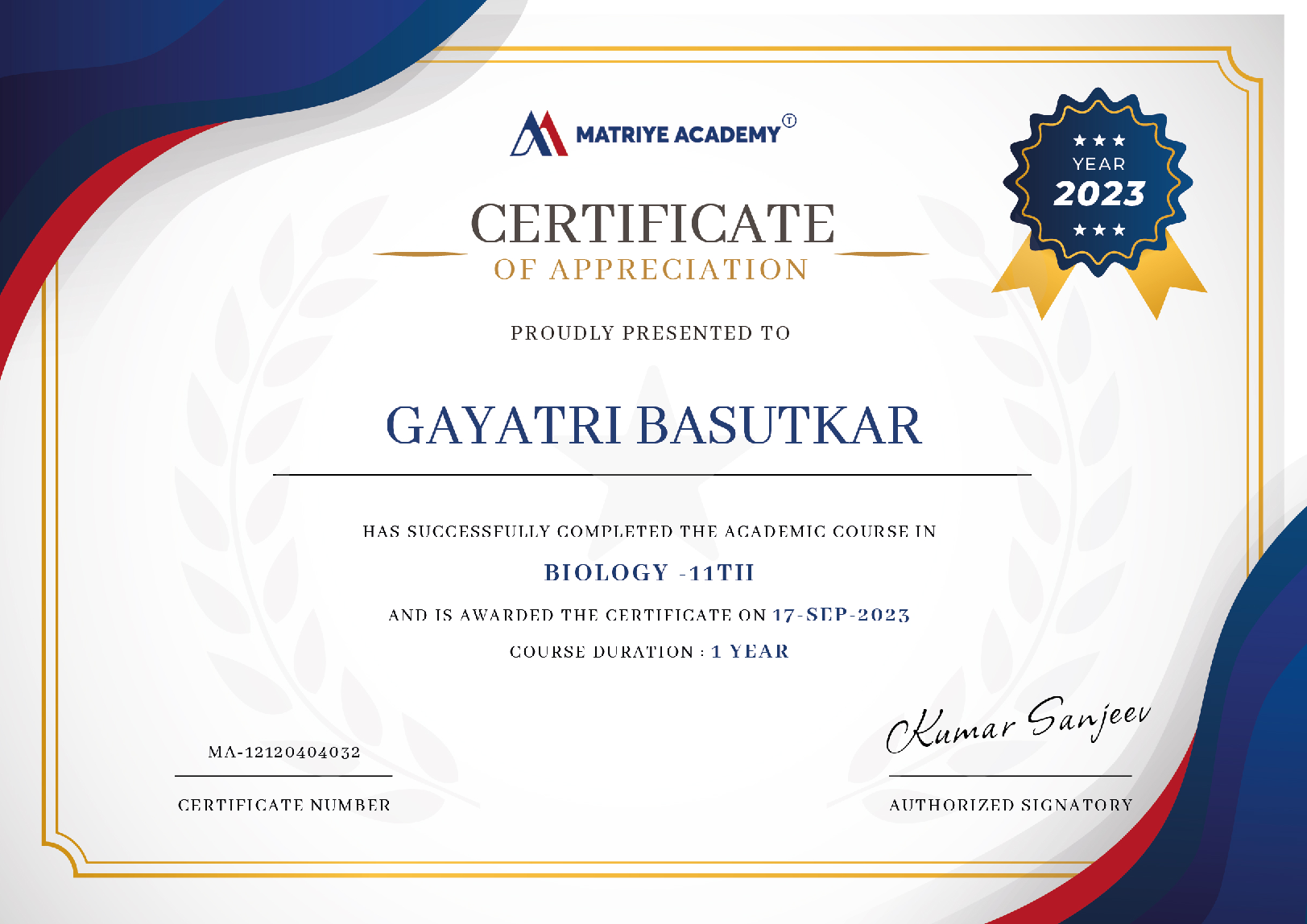


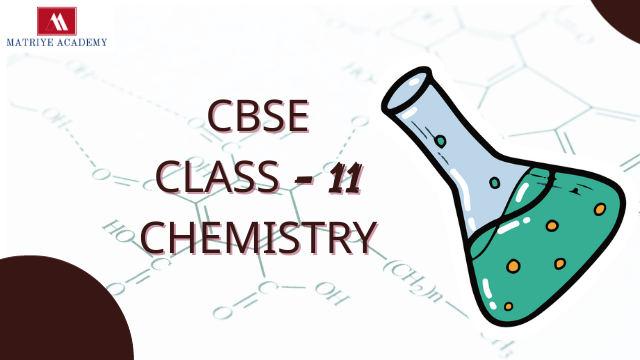
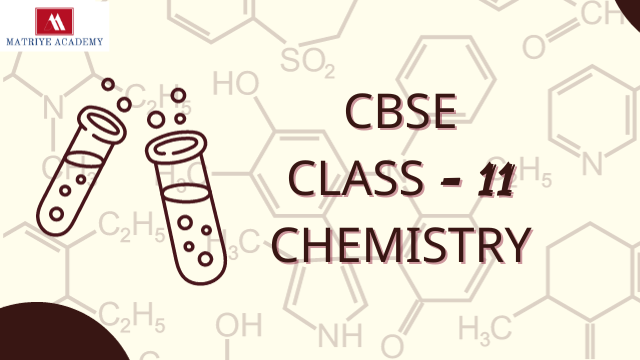
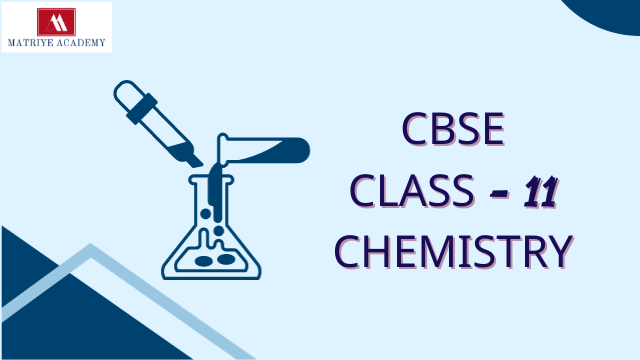
Leave A Comment